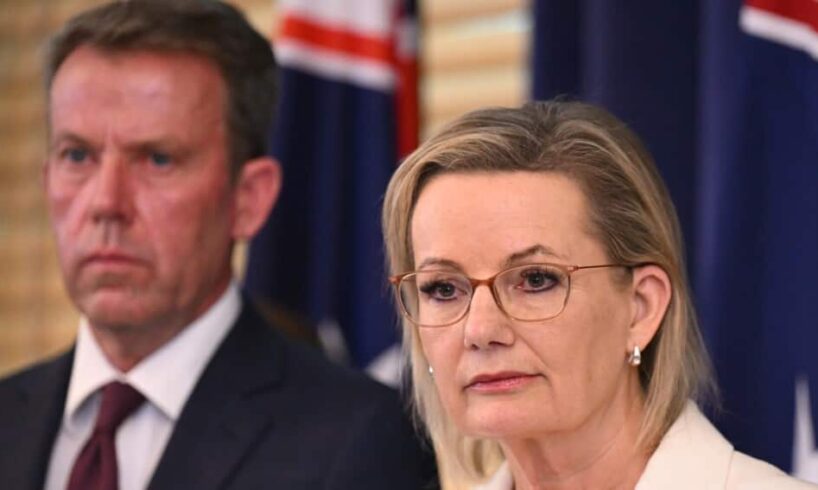
The Opposition has emerged from joint party room talks spruiking a climate and energy policy that foregrounds power prices and removes specific emissions reduction goals.Fronting the media on Sunday afternoon, Opposition leader Sussan Ley said the plan was “all about affordable energy and responsible emissions reduction”. “Why wouldn’t you, as prime minister, prioritise affordable energy instead of the ideology of an 82 per cent renewable grid by 2030,” she said. “It’s fundamentally, completely around the wrong way when it comes to looking after Australians who deserve a government that backs them in and understands that affordable power is the number one consideration for citizens in this.”While saying the Coalition would keep Australia in the Paris Agreement, Ley would not be drawn on questions of whether the Opposition would submit Nationally Determined Contributions (NDCs) to the United Nations, as required from all signatories to the global climate treaty.
“We’ve already said that we won’t make any comments about targets from opposition, and that we will look at our NDCs, our short-term targets, once in government,” she said.
Countries that wish to fulfil their obligations under the Paris Agreement must ratchet up their targets for reducing greenhouse gas emissions every five years.In a policy document released today, the Opposition said it would reduce emissions “on average year on year, for every five-year period of Australia’s Nationally Determined Contribution”. It did not specify by how much it would reduce emissions, only saying it would be done “in Australia’s national interest by doing our fair share considering the real performance of OECD countries” and “as fast and as far as technology allows, without imposing mandated costs on families or industry”.Speaking alongside Ley, National Party leader David Littleproud said: “We will make sure that we don’t streak ahead, but we’re not going to be a laggard and we should peg ourselves to what the rest of the world’s doing,” he said.
Both the Liberals and National parties dropped a net zero by 2050 commitment from their platforms at recent party meetings.
In its policy document, the Opposition said: “Whilst it is not our policy to set long-term targets, net zero would be a welcome outcome, if achieved through technology, choice and voluntary markets.”Several days ago, the Liberal Party put out a press release saying it would scrap Labor’s emissions reduction target of 43 per cent by 2030 and “not legislate mandates in government”.Prime Minister Anthony Albanese said this week that the Opposition’s direction on climate and energy policy was “choosing to take Australia backwards”.”They’re walking away from jobs for Australians, and investment certainty for business,” he told reporters on Thursday morning.
“They’re walking away from climate action because they fundamentally do not believe in the science of climate change.”
Speaking today, Littleproud said the Albanese government was continuing “to throw sledges at the Coalition about a 2015 debate about the science of climate change”.”This debate is not one predicated on science. It is one predicated on economics,” he said. Foreign Minister Penny Wong, a veteran of Canberra’s so-called climate wars, earlier said the Coalition’s decision to abandon net zero would do little to shift public opinion.
Watered-down climate targets would drive up power prices for Australians and show disrespect towards Pacific nations, Wong said.
The Opposition’s policy proposals
The newly released document — titled Affordable and Responsible — also outlines a policy called the Affordable Electricity Scheme, which the Opposition said would differ from the government’s Capacity Investment Scheme by being more technology-neutral. Speaking today, Ley criticised government agencies that “invest or underwrite taxpayers’ money in wind and solar, which don’t need their help”. The Opposition has also said, if it were to win government, it would remove the emissions reduction objective from the National Energy Objectives.
An emissions reduction objective was added to the rules governing national electricity, gas and related retail markets during the Albanese government’s first term.
The Opposition also reiterated its support for lifting a moratorium on nuclear energy, which was first implemented federally under a former Coalition government in the late 1990s. However, the policy document does not detail plans for building nuclear power facilities at the sites of existing coal plants, something former Opposition leader Peter Dutton took to the May election, at which the Coalition suffered a crushing defeat. At the last two federal elections, the Liberal Party lost inner-city seats to independent candidates focused on climate action.
The Opposition’s plan also talks up the importance of gas in Australia’s energy system, pledging to “drive new gas exploration and development across key basins including Beetaloo, Narrabri, Barossa, Browse, Cooper and Scarborough — bringing significant new supply online”.
LISTEN TO
Hopes dashed as global fossil fuel emissions increase in 2025
“Approvals will be streamlined, infrastructure investment supported, and gas delivery added to the investment mandate of the Clean Energy Finance Corporation,” the policy document read.A gas reservation — such as has existed in Western Australia since 2006 — would reserve a certain portion of Australia’s gas for the domestic market. The vast majority of Australian gas is currently exported, and some experts say this has raised domestic prices by making Australian companies compete with international buyers willing to pay more. — With additional reporting from the Australian Associated Press
Source





